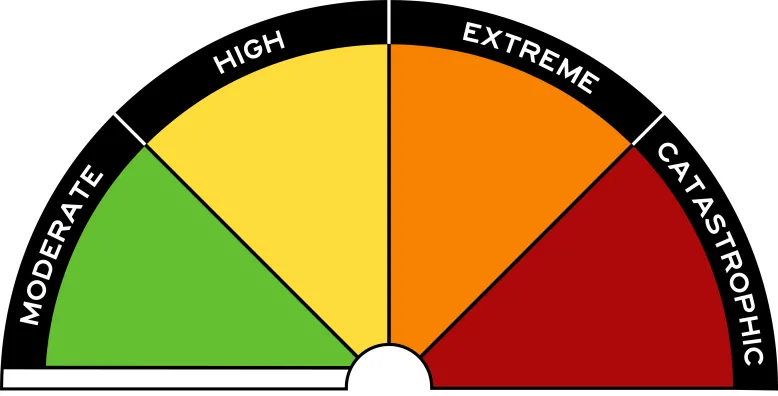Our fire weather services
To help keep Australians safe, our fire weather services include:
- fire weather warnings, when forecast weather conditions are likely to be dangerous
- fire danger ratings, in consultation with fire agencies
- fire danger products, such as detailed forecasts and outlooks for fire agencies and other organisations
- wind change charts for south-eastern Australia during elevated fire danger periods.
Total fire bans
Fire agencies in each state and territory are responsible for total fire bans. Check with your state or territory fire agency for any current fire bans or other restrictions.
You can find information for your state and territory emergency services through the National Emergency Management Agency website.
Fire weather warnings
We issue fire weather warnings:
- based on fire weather districts
- when forecast weather conditions are likely to be dangerous
- in the afternoon for the following day
- early in the morning for the current day.
We update warnings regularly and reissue them as needed.
Latest fire weather warnings
View our Warnings and alerts.
When fires are likely:
- stay in touch with your state or territory emergency services – find details through the National Emergency Management Agency website
- tune into emergency broadcasters
- keep up to date with the fire weather warnings by checking this website or getting fire weather notifications from the BOM Weather app.
Fire danger ratings
Fire danger ratings indicate how difficult it will be to control or suppress a fire. The rating is set by state and territory fire agencies, based on weather and other conditions. This includes:
- temperature
- humidity
- wind
- rain
- fuel conditions.
Fire danger ratings scale
There are 4 levels in the Australian fire danger ratings, with actions at each step:
- Moderate – plan and prepare.
- High – be ready to act.
- Extreme – take action now to protect life and property.
- Catastrophic – for your survival, leave bushfire risk areas.
The scale also includes 'No rating', shown as a white bar, when no proactive action is required by a community. Fires may start on 'no rating' days but they are not likely to move or act in a way that threatens community safety.
Learn more about the Australian Fire Danger Rating System on the Australasian Fire and Emergency Service Authorities Council (AFAC) website.
Fire danger ratings for your location
For the latest fire danger ratings, search for your location in Forecasts and observations.
Fire behaviour index
The fire behaviour index (FBI) is a scale of potential fire behaviour. It ranges from zero to 100 and beyond. Higher values mean more dangerous fire behaviour and greater fire danger risk.
Fire agencies use the FBI to inform decisions about the fire danger rating for a district. They also take into account information about other conditions.
Calculating the fire behaviour index
We use mathematical models to predict potential fire behaviour characteristics, based on weather and fuel information. For example, the models can predict:
- fire intensity
- flame height
- rate of spread
- spotting potential.
There are models for 8 vegetation types:
- buttongrass
- grassland
- grassy woodland
- forest
- mallee heath
- pine
- shrubland
- spinifex.
The models calculate the FBI number for a district based on predicted fire intensity or rate of spread. This informs the fire danger rating for that district.
Fire behaviour index links to fire danger ratings
Within the index, there are number ranges (categories). Each category aligns to a level of the fire danger rating scale. See 'FBI categories for fire danger ratings' on this page.
The FBI number for a district will be in one of these categories. This indicates the fire danger rating for that district.
It also means the fire danger rating reflects expected fire behaviour. This supports organisations making operational decisions about, for example:
- fire preparedness, including community safety messages and advice
- prescribed burning
- bushfire suppression.
FBI categories for fire danger ratings
| Index number range (category) | Fire danger rating |
|---|---|
| 0 to 11 | No rating |
| 12 to 23 | Moderate |
| 24 to 49 | High |
| 50 to 99 | Extreme |
| 100-plus | Catastrophic |
Service level specification for fire weather
This document describes our publicly available fire weather services and the additional services we provide to support emergency management.

